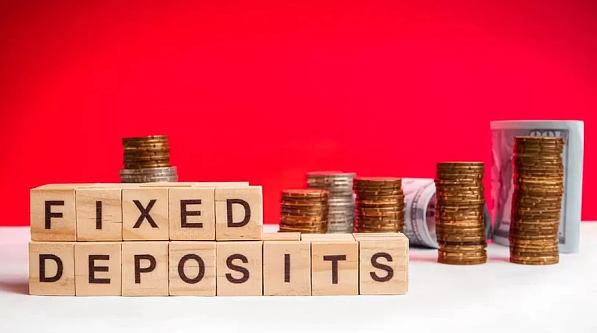Exploring the Safety and Benefits of Fixed Deposits
March 05, 2025
Investing money wisely is crucial for financial security, and Fixed Deposits (FDs) have long been considered one of the safest investment options. Whether you are a risk-averse investor or someone looking for steady returns, FDs offer reliability, guaranteed returns, and financial growth. Let’s explore why a Fixed Deposit is a secure investment choice and how an FD interest calculator can help you plan your savings better.
What is a Fixed Deposit?
A Fixed Deposit is a financial instrument offered by banks and financial institutions where an individual deposits a lumpsum amount for a fixed tenure at a predetermined interest rate. At the end of the tenure, the investor receives the principal amount along with accrued interest. The interest rate remains fixed throughout the deposit period, making it an attractive option for risk-averse investors.
Why is a Fixed Deposit a Safe Investment Option?
1. Assured Returns
Unlike market-linked investments such as stocks or mutual funds, FDs provide assured returns. The interest rate is fixed at the time of investment, ensuring that investors know exactly how much they will earn at maturity. This eliminates the uncertainty associated with market fluctuations.
2. Low-Risk Investment
FDs are one of the safest investment options because they are not influenced by stock market volatility. Since the returns are pre-determined, they provide stability, making them ideal for conservative investors.
3. Protection Under DICGC
In India, Fixed Deposits are insured up to ₹5 lakh per depositor per bank by the Deposit Insurance and Credit Guarantee Corporation (DICGC). This means that even in the rare event of a bank failure, depositors can recover their money up to the insured amount.
4. Flexible Tenure and Interest Payout Options
FDs offer flexibility in terms of tenure, ranging from a few days to several years. Investors can choose between cumulative FDs, where interest is reinvested, or non-cumulative FDs, where interest is paid out monthly or quarterly, based on financial needs.
5. Attractive Interest Rates
Banks and financial institutions offer attractive interest rates on FDs, which are generally higher than savings accounts. Senior citizens often receive an additional interest rate benefit, making FDs even more rewarding. To determine the exact returns on your deposit, using an FD interest calculator can be highly beneficial.
Leading banks such as ICICI Bank offer attractive interest rates. It also offers an easy FD interest calculator to help you calculate your FD returns.
6. Liquidity and Premature Withdrawal
Although FDs are meant to be locked in for a specific period, they also have premature withdrawal options in case of emergencies. While there may be a nominal penalty, this feature adds a layer of financial security.
7. Loan Against FD
In case of urgent financial needs, investors can avail of loans against their Fixed Deposits. This eliminates the need to break the deposit, ensuring that you continue to earn interest while addressing immediate liquidity requirements.
8. Tax Benefits on FDs
A Tax-Saving Fixed Deposit with a five-year lock-in period qualifies for a deduction of up to ₹1.5 lakh under Section 80C of the Income Tax Act. While the interest earned on FDs is taxable, strategic tax planning can help maximise benefits.
How to Calculate FD Returns?
Calculating FD returns manually can be complex, but an FD interest calculator simplifies the process. By entering details such as deposit amount, tenure, and interest rate, investors can get an accurate estimate of the maturity amount and interest earned. This helps in better financial planning and goal setting.
The steps to calculate interest earned and maturity amount are mentioned below:
You can use the FD Calculator to calculate the interest and maturity amount on the FD as follows:
- Select the Customer Type, i.e., Normal or Senior Citizen.
- Select the type of Fixed Deposit, i.e., Cumulative or Interest Payout (Quarterly/Monthly) or Short-term FD.
- The FD date will be defaulted as the current date.
- Enter the FD amount (Minimum amount is ₹10,000).
- Select the format of entering the FD tenure, i.e., in combination of Years/Months/Days or in Days. Only enter the preferred tenure according to the format chosen.
- The applicable interest rate, interest amount, maturity date, and maturity amount are displayed to the customer.
Who Should Invest in a Fixed Deposit?
FDs are suitable for:
- Risk-averse investors looking for safe and stable returns.
- Senior citizens who want a steady income with higher interest rates.
- Salaried professionals and retirees seeking guaranteed returns.
- Parents saving for children’s education or future expenses.
- Individuals looking for tax-saving options under Section 80C.
Conclusion
Fixed Deposits remain one of the safest and most reliable investment options for individuals looking for stable returns and financial security. With guaranteed interest rates, insurance protection, and flexible options, FDs cater to investors across all age groups. Using an FD interest calculator can further enhance financial planning, ensuring that you make informed investment decisions. If safety and predictability are your priorities, a Fixed Deposit is undoubtedly a prudent choice for securing your wealth.
Recent Stories
- IMD issues heat wave alert for Ahmedabad city till May 3rd
- ₹61 crore MGNREGA scam unearthed in 3 villages of Dahod
- Maximum temperature nears 44°C in Gujarat
- Azerbaijan Airlines to launch Ahmedabad–Baku direct flight service from July
- Amul launches "world’s highest protein Kulfi"
- GMRC timetable for Ahmedabad - Gandhinagar Sachivalaya Metro route
- 28 kg of stale food destroyed during inspection at 3 food outlets in Rajkot
